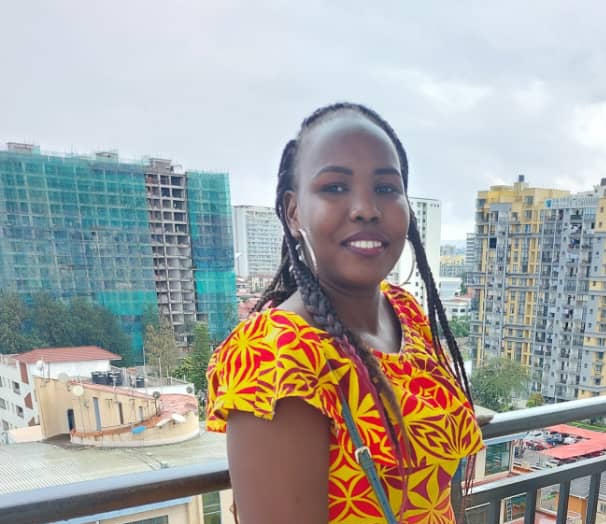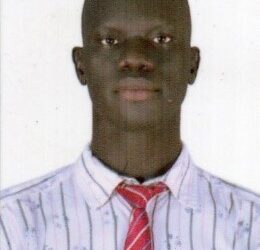By Esther Aurelio Agira Lohutuhureng
During the civil war in the country, which occurred in December 2013 and again in July 2016, between the forces of the government and opposition forces, many families separated. There was loss of life and property. As a result of the civil war, many people have been forced to leave their homes and seek protection at UN Protection of Civilians sites (POCs) within the state or out of the country. After they were forced to leave their homes, this rendered them internally displaced persons (IDPs). Some of those who are displaced either decided to remain within their states or traveled to other states of their choice within the country.
Civil war causes trauma in the lives of IDPs. Trauma is a pervasive problem that results from exposure to an incident that is deeply emotional and disturbing. At the time of the civil war in South Sudan, many people had been killed, others injured, some had lost their children, and some women had been raped. Due to the distressing experiences mentioned above, many IDPs have been traumatized. In addition, some families are still mourning their loved ones. Even if few IDPs experienced the deaths of their beloved ones, the fact that one had to leave his or her own home is legitimately enough to cause trauma. This trauma affects people’s social lives in the community.
For instance, what happened last week inside Malakal’s POC, where a man was killed during a clash, as reported by No. 1 Citizen Daily Newspaper on Wednesday, May 31st, 2023? It was suspected that the fight was started among women at a water point. However, I am quite sure that those women went to the water point only to fetch water. In addition, they had no intention to fight, but because of tiny arguments, they ended up in a fight.
However, those women are traumatized because the issue of water could not have ended in brawls. The issue of water could not lead to a dispute over who came first or the order of the line of jerry cans, which is common at water points and boreholes, among others. If only those women were not traumatized, they would have talked to each other in a more understanding manner. Besides, no one would have lost a life.
Research shows that one person in five lives with some form of mental disorder, which ranges from mild depression or anxiety to psychosis and medical trauma. Medical trauma occurs due to injury to the body (maimed or amputated) or experiences of long-lasting mental or emotional damage. This type of trauma is widespread among South Sudanese. However, trauma has no boundaries, regardless of age or gender. But the most affected groups are women and children. The reason is that children are the most vulnerable to the effects of trauma since they are less able to anticipate danger, followed by women. Women have a two- to three-times higher risk of developing post-traumatic stress disorder compared to men.
As a matter of fact, countless internally displaced people are suffering from depression and anxiety. Apart from IDPs, more citizens are living with mental disorders in different areas affected by conflict in the country. The evidence is that if someone mistakenly steps on another person’s feet, he or she will immediately start a fight. Even if one is to apologize, it won’t work out. So, instead of judging such individuals, one should understand the circumstances in which they are. Some of these people are traumatized due to hunger, high prices of basic commodities, and delayed salary payments. For these reasons, it is evident that such hardships have massively caused trauma in the lives of the citizens.
It is well known that the major responsibility for IDPs lies with the governments of the states to protect and assist internally displaced persons, not the United Nations High Commission for Refugees (UNHCR).
Regardless of the different types of trauma that IDPs are experiencing, there is an urgent need for the government and the United Nations, with its partners, to intervene in the issues of the trauma healing process. The following are some ways to overcome the pain that results from trauma: organizing workshops on trauma healing whereby groups of IDPs talk about distressing events that traumatize them. Because, through talking with others, one can relieve stress and also realize that others share the same feelings. In doing so, the traumatize person would acknowledge that he or she is not alone in that situation. These workshops should be organized through Commission for Truth, Reconciliation and Healing, international and national organizations.
The government should involve psychiatrists in the process of trauma healing since psychiatrists can cure trauma. Not only that, they are qualified to assess both the mental and physical aspects of psychological problems. Therefore, they are very beneficial for IDPs with psychological trauma.
For instance, emotional disorders are caused by severe disturbing events such as accidents, violence, and rape. Such a traumatized person needs counseling from counselors to resolve the unpleasant feelings and memories that they have long avoided. This can be done through therapy sessions.
However, in traumatized societies like South Sudan, the trauma is likely to transfer to future generations if not treated now. Since internally displaced persons are in POCs temporarily, they have hope that one day they will go back to their places of origin. If not treated, they are likely to transmit it to other members of society. In addition, there should be campaigns for trauma healing in order to achieve peaceful coexistence among South Sudanese. In order to achieve reconciliation in society for the purpose of progress towards sustainable peace, trauma healing should be stressed by all the partners in the trauma healing process.
However, political issues always relate to trauma. That’s why, if we want to talk about trauma healing, we should highlight the political situation in the country, like increasing violence in other parts of the country and the devastation of the economy, and deal with them first. Therefore, it is important to address trauma not only within victims but also within perpetrators as well.
The Author can be reached via Tel: 0921492857, Email: Esther090119@gmail.com




